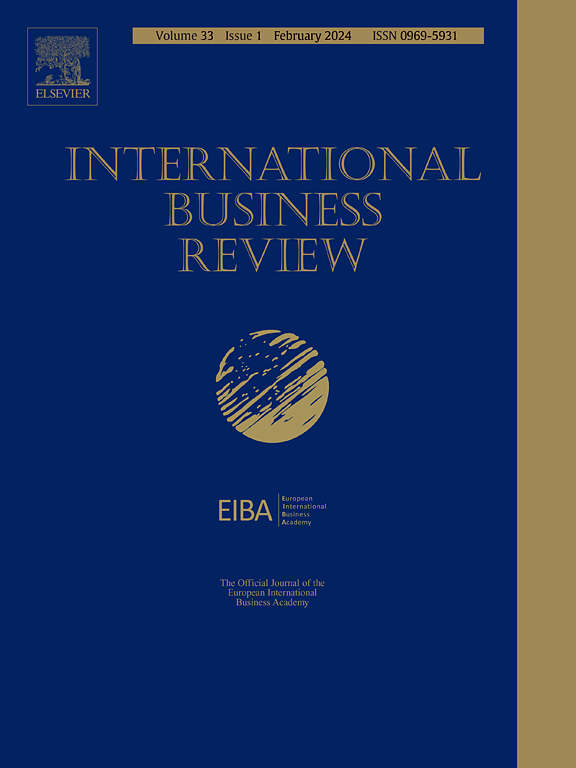Inter-partner differences in globalization exposure and national culture and IJV termination: A comparison of emerging versus developed market host countries
IF 5.9
1区 管理学
Q1 BUSINESS
引用次数: 0
Abstract
This study investigates how differences in globalization exposure and national culture between international joint venture (IJV) partner firms influence the likelihood of IJV termination. Building on prior research that has largely treated inter-partner differences as composite constructs, we instead examine the specific dimensions of globalization exposure and cultural orientations, thereby offering a more granular understanding. Drawing from a comprehensive panel dataset of 24,957 IJVs formed across 55 countries between 1991 and 2016, we also consider the IJV host country’s economic development as a contingency factor. Our findings indicate that certain inter-partner differences can be functional, reducing the rate of IJV termination, while others are dysfunctional and increase termination likelihood. Moreover, differences in specific dimensions become more or less functional depending on whether the IJV is hosted in an emerging versus a developed market context. Overall, our findings deepen the IJV literature and provide meaningful insights on strategic alliance formation.
合作伙伴之间在全球化暴露、国家文化和合资企业终止方面的差异:新兴市场东道国与发达市场东道国的比较
本研究探讨了国际合资企业(IJV)合作伙伴企业在全球化暴露和国家文化方面的差异如何影响合资企业终止的可能性。先前的研究将合作伙伴之间的差异视为复合结构,在此基础上,我们转而研究全球化暴露和文化取向的具体维度,从而提供更细致的理解。根据1991年至2016年间在55个国家组建的24,957家合资企业的综合面板数据集,我们还将合资企业东道国的经济发展作为一个应急因素考虑在内。我们的研究结果表明,某些伴侣之间的差异可能是功能性的,降低了IJV的终止率,而另一些则是功能性的,增加了终止的可能性。此外,具体维度的差异或多或少取决于合资企业是在新兴市场还是发达市场环境中托管。总体而言,我们的研究结果深化了合资企业文献,并为战略联盟的形成提供了有意义的见解。
本文章由计算机程序翻译,如有差异,请以英文原文为准。
求助全文
约1分钟内获得全文
求助全文
来源期刊

International Business Review
BUSINESS-
CiteScore
14.10
自引率
6.90%
发文量
95
审稿时长
62 days
期刊介绍:
The International Business Review (IBR) stands as a premier international journal within the realm of international business and proudly serves as the official publication of the European International Business Academy (EIBA). This esteemed journal publishes original and insightful papers addressing the theory and practice of international business, encompassing a broad spectrum of topics such as firms' internationalization strategies, cross-border management of operations, and comparative studies of business environments across different countries. In essence, IBR is dedicated to disseminating research that informs the international operations of firms, whether they are SMEs or large MNEs, and guides the actions of policymakers in both home and host countries. The journal warmly welcomes conceptual papers, empirical studies, and review articles, fostering contributions from various disciplines including strategy, finance, management, marketing, economics, HRM, and organizational studies. IBR embraces methodological diversity, with equal openness to papers utilizing quantitative, qualitative, or mixed-method approaches.
 求助内容:
求助内容: 应助结果提醒方式:
应助结果提醒方式:


